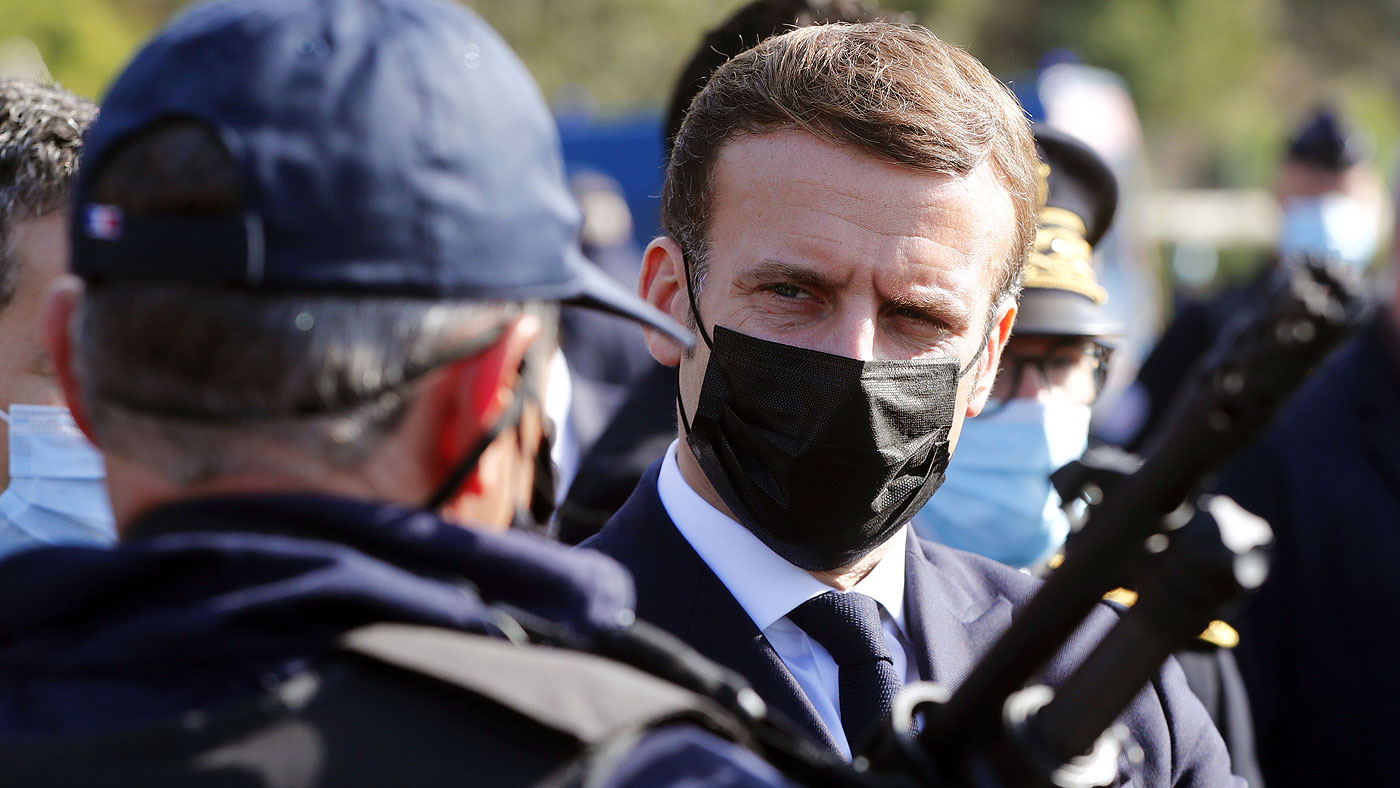Emmanuel Macron calls for EU to rethink free movement
French president says reform is needed to tackle international terrorism

A free daily email with the biggest news stories of the day – and the best features from TheWeek.com
You are now subscribed
Your newsletter sign-up was successful
The EU must strengthen its internal and external borders to counter the threat of extremism, Emmanuel Macron said yesterday during a visit to his country’s frontier with Spain.
The French president “is calling for a rethink on free movement in the EU after a spate of suspected Islamist terror attacks”, the BBC reports.
“I am in favour of a deep overhaul of Schengen,” Macron said, referring to the system of free movement between 26 European countries without passports, identity cards or border checks. The EU must “rethink its organisation” and “strengthen our common border security with a proper border force”, he added.
The Week
Escape your echo chamber. Get the facts behind the news, plus analysis from multiple perspectives.

Sign up for The Week's Free Newsletters
From our morning news briefing to a weekly Good News Newsletter, get the best of The Week delivered directly to your inbox.
From our morning news briefing to a weekly Good News Newsletter, get the best of The Week delivered directly to your inbox.
“Europe is reeling from two attacks in the past week that involved assailants who moved freely between Schengen member states,” Reuters reports.
On Monday, a gunman killed four people in Vienna, after travelling to Slovakia in July to buy ammunition. And the man who killed three people in a church in Nice last Thursday had travelled from Tunisia to Italy via the island of Lampedusa before crossing into France a few days before the attack.
“Macron said the recent attacks were a warning to Europe that ‘the terrorist risk is everywhere’,” the Daily Mail reports.
The French leader - who has spoken of a clash between radical Islam and the West - said he would unilaterally double the size of his country’s border force from 2,400 to 4,800 officers. France reimposed border controls after the 2015 Bataclan attacks, under an exception from the Schengen Agreement.
A free daily email with the biggest news stories of the day – and the best features from TheWeek.com
Macron “also wants the EU to have a single asylum policy to end the rows that have paralysed its policymaking during a years-long migrant crisis”, Reuters adds.
Holden Frith is The Week’s digital director. He also makes regular appearances on “The Week Unwrapped”, speaking about subjects as diverse as vaccine development and bionic bomb-sniffing locusts. He joined The Week in 2013, spending five years editing the magazine’s website. Before that, he was deputy digital editor at The Sunday Times. He has also been TheTimes.co.uk’s technology editor and the launch editor of Wired magazine’s UK website. Holden has worked in journalism for nearly two decades, having started his professional career while completing an English literature degree at Cambridge University. He followed that with a master’s degree in journalism from Northwestern University in Chicago. A keen photographer, he also writes travel features whenever he gets the chance.
-
 What are the best investments for beginners?
What are the best investments for beginners?The Explainer Stocks and ETFs and bonds, oh my
-
 What to know before filing your own taxes for the first time
What to know before filing your own taxes for the first timethe explainer Tackle this financial milestone with confidence
-
 The biggest box office flops of the 21st century
The biggest box office flops of the 21st centuryin depth Unnecessary remakes and turgid, expensive CGI-fests highlight this list of these most notorious box-office losers
-
 Greenland’s capital becomes ground zero for the country’s diplomatic straits
Greenland’s capital becomes ground zero for the country’s diplomatic straitsIN THE SPOTLIGHT A flurry of new consular activity in Nuuk shows how important Greenland has become to Europeans’ anxiety about American imperialism
-
 Epstein files topple law CEO, roil UK government
Epstein files topple law CEO, roil UK governmentSpeed Read Peter Mandelson, Britain’s former ambassador to the US, is caught up in the scandal
-
 Iran and US prepare to meet after skirmishes
Iran and US prepare to meet after skirmishesSpeed Read The incident comes amid heightened tensions in the Middle East
-
 Israel retrieves final hostage’s body from Gaza
Israel retrieves final hostage’s body from GazaSpeed Read The 24-year-old police officer was killed during the initial Hamas attack
-
 China’s Xi targets top general in growing purge
China’s Xi targets top general in growing purgeSpeed Read Zhang Youxia is being investigated over ‘grave violations’ of the law
-
 Panama and Canada are negotiating over a crucial copper mine
Panama and Canada are negotiating over a crucial copper mineIn the Spotlight Panama is set to make a final decision on the mine this summer
-
 Why Greenland’s natural resources are nearly impossible to mine
Why Greenland’s natural resources are nearly impossible to mineThe Explainer The country’s natural landscape makes the task extremely difficult
-
 Iran cuts internet as protests escalate
Iran cuts internet as protests escalateSpeed Reada Government buildings across the country have been set on fire